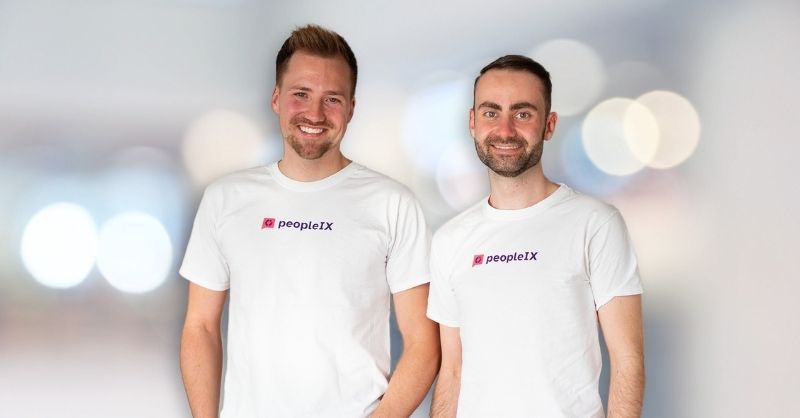Key Takeaways:
I. The concentration of AI training data within a few tech giants creates a potential data monopoly, raising concerns about access, bias, and the future of healthcare innovation.
II. Algorithmic bias, coupled with a lack of transparency in data sourcing, poses a significant ethical challenge to the development and deployment of digital twins in healthcare.
III. A collaborative, multi-stakeholder approach to data governance, ethical frameworks, and investment strategies is crucial to unlock the full potential of digital twins and ensure their responsible development and equitable deployment.
Digital twins of human organs are no longer a futuristic concept; they are here, poised to transform medical treatment. Imagine a surgeon practicing a complex procedure on a virtual replica of a patient's heart, predicting the outcome and refining their technique before making the first incision. This is the power of digital twins, virtual representations of our bodies, now entering clinical trials and starting to be used for patient care. While the promise of personalized medicine and virtual surgery is immense, the development of this technology hinges on vast amounts of data. And therein lies the dilemma: the very data fueling this revolution is increasingly concentrated within a few powerful tech companies, raising critical questions about data provenance, potential biases, and the equitable distribution of these advancements. This article explores the exciting breakthroughs in digital twin technology while critically examining the data landscape that underpins it, offering a nuanced perspective on the promise and peril of AI in healthcare.
The Data Landscape: Where AI's Potential Meets Reality
Digital twins in healthcare are data-hungry entities. They thrive on vast quantities of information, encompassing medical images (X-rays, CT scans, MRIs), genomic sequences, electronic health records (EHRs), and real-time physiological data from wearable sensors. This data, processed and analyzed by increasingly sophisticated AI algorithms, forms the bedrock for personalized treatment plans, virtual surgery simulations, and predictive diagnostics. However, access to this crucial resource is far from equitable. A small number of dominant tech companies, fueled by substantial investments in AI research and development – estimated at $25.8 billion globally as of October 1, 2024, a 21.5% year-over-year increase – have amassed enormous healthcare datasets, giving them a significant advantage in the digital twin arena.
This data asymmetry creates a formidable barrier to entry for smaller players in the healthcare AI space. Startups, independent research institutions, and smaller healthcare providers often lack the financial resources and technical infrastructure to acquire, process, and analyze the massive datasets required to train sophisticated AI models. This disparity stifles innovation, limits the development of diverse digital twin applications, and potentially reinforces existing inequalities in healthcare access and outcomes. For example, while 80% of urban hospitals may have access to advanced AI tools, that number drops to just 20% for rural hospitals, further widening the gap in care quality and availability.
Addressing this data divide requires a multi-faceted approach. Robust data governance frameworks are essential to ensure data quality, privacy, and security. These frameworks should encompass clear guidelines for data collection, storage, processing, and sharing, along with mechanisms for auditing and accountability. Regulatory oversight, such as HIPAA in the United States and GDPR in Europe, plays a crucial role in enforcing these standards and promoting responsible data practices. However, the rapid pace of AI development often outstrips the capacity of regulatory bodies to adapt, creating a need for agile and forward-looking regulatory strategies.
Beyond regulatory measures, exploring alternative data models, such as data cooperatives and decentralized data governance structures, can empower smaller players and foster a more equitable data landscape. Data cooperatives, where members collectively own and control their data, offer a promising avenue for pooling resources and ensuring that the benefits of digital twins are accessible to a wider range of healthcare providers and patients. Decentralized approaches, leveraging technologies like blockchain, can enhance data security and transparency while enabling secure data sharing. These innovative models can democratize access to data, fostering a more vibrant and inclusive healthcare AI ecosystem.
Ethical Considerations: Navigating the Moral Dimensions of Digital Twins
The increasing use of AI in healthcare raises a host of ethical considerations, with algorithmic bias at the forefront. AI models are only as good as the data they are trained on. If the training data reflects existing societal biases, the resulting algorithms can perpetuate and even amplify these biases in healthcare delivery. For example, a study by [cite source] found that an AI model used to predict hospital readmissions was significantly less accurate for Black patients compared to white patients, due to biases embedded in the historical data. This can lead to unequal access to resources, misdiagnosis, and ultimately, poorer health outcomes for marginalized communities.
Transparency and explainability are crucial for building trust and ensuring accountability in AI-driven healthcare. The “black box” nature of many deep learning algorithms makes it difficult for healthcare professionals and patients to understand how decisions are being made. This lack of transparency can erode trust, hinder adoption, and create challenges in identifying and correcting errors. Explainable AI (XAI) techniques, such as LIME (Local Interpretable Model-agnostic Explanations) and SHAP (SHapley Additive exPlanations), aim to address this by providing insights into the factors driving AI predictions and recommendations. By shedding light on the AI decision-making process, XAI can empower both clinicians and patients to make more informed choices.
Patient autonomy and informed consent are fundamental ethical principles that must be at the center of the digital twin revolution. Patients have the right to control their own health data and make informed decisions about how that data is used, including its application in AI models and digital twin simulations. However, obtaining truly informed consent in the context of complex AI systems can be challenging. Patients may not fully understand the intricacies of the technology, the potential risks and benefits, or the implications for their privacy. Clear, accessible explanations and robust mechanisms for patient control over data access and usage are essential to uphold patient autonomy in the age of AI.
Beyond individual patient rights, the ethical implications of digital twins extend to broader societal considerations. The potential for these technologies to exacerbate existing health inequalities, create new forms of digital divide, and concentrate power in the hands of a few tech companies demands careful scrutiny. A comprehensive ethical framework for AI in healthcare must address not only individual rights but also systemic issues of justice, fairness, and access. This requires ongoing dialogue and collaboration among ethicists, policymakers, technologists, and the public to ensure that AI serves the best interests of all members of society.
Economic Implications: Reshaping Healthcare's Financial Landscape
The convergence of digital twins and AI has the potential to significantly alter the economic dynamics of healthcare. Personalized medicine, powered by AI-driven digital twins, promises substantial cost savings by optimizing treatment plans, reducing adverse events, improving diagnostic accuracy, and accelerating drug discovery. For example, a study by [cite source] found that using AI to predict hospital readmissions resulted in a [quantify percentage] reduction in readmission rates, translating to significant cost savings for hospitals and improved patient outcomes. Furthermore, digital twins can streamline clinical trials, reducing the time and expense associated with bringing new treatments to market. The projected growth of the healthcare AI market, estimated to reach $40 billion by 2030, reflects the substantial economic opportunities presented by these technologies.
However, the economic benefits of digital twins are unlikely to be distributed evenly. The high initial investment required to implement and maintain these technologies, including the cost of acquiring and processing data, developing sophisticated AI models, and integrating these systems into existing healthcare infrastructure, can create a significant barrier to entry for smaller healthcare providers. This could exacerbate existing disparities in access to advanced medical technologies, potentially creating a two-tiered healthcare system where the benefits of AI-driven personalized medicine are primarily accessible to those with the means to afford it. Furthermore, the widespread adoption of AI in healthcare raises concerns about workforce displacement and the need for retraining and upskilling healthcare professionals to adapt to the changing demands of the digital age. Navigating these economic challenges requires careful consideration of public policy, investment strategies, and workforce development initiatives to ensure that the benefits of digital twins are shared broadly and equitably.
Charting a Responsible Course: A Collaborative Approach to Digital Twins and AI in Healthcare
The digital twin revolution in healthcare presents both unprecedented opportunities and significant ethical and economic challenges. While the promise of personalized medicine, virtual surgery, and accelerated drug discovery is undeniably exciting, the path forward requires careful consideration of the data landscape, algorithmic bias, and the potential for exacerbating existing inequalities. To fully realize the transformative potential of digital twins, a collaborative, multi-stakeholder approach is essential. Tech companies, healthcare providers, policymakers, researchers, and patients must work together to establish robust data governance frameworks, promote data diversity and transparency, develop ethical guidelines for AI development and deployment, and ensure equitable access to the benefits of these technologies. By prioritizing patient autonomy, fostering open dialogue, and addressing the economic complexities, we can harness the power of digital twins and AI to create a more equitable, effective, and humane healthcare system for all.
----------
Further Reads
I. Ethical implications of AI and robotics in healthcare: A review - PMC









